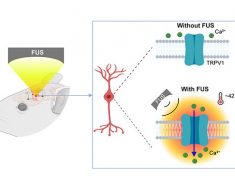When he was in his early twenties, Jack Baldwin was ripped.
After visiting the gym every day, his muscles would bulge from his clothes, and strangers would comment on his body-builder physique.
‘I was almost as wide as I was tall’, remembers the 28-year-old.
Externally, Jack appeared to be in tip-top physical condition, but on the inside he was falling apart. He would lose his breath climbing the stairs, his blood pressure was ‘through the roof’ and he would cry at the drop of a hat. He also lost his libido.
It was the culmination of years of steroid abuse that could have gravely jeopardised his health.
Jack, a joiner from Hull, was 19 when he started taking anabolic steroids – both orally and with needles – in a bid to beef up. Within a couple of months he was addicted.

Anabolic steroids are class C drugs, which are legal to use, but illegal to sell. They increase muscle mass and improve athletic performance and they come with a catalogue of health risks.
According to the UK Anti-Doping Agency there are around one million regular UK steroid users and the most common demographic for the onset of Image and Performance Enhancing Drugs (IPED) use is 20-24 year-old males.
So worried about the rise in usage among Gen Z, in 2020 the organisation launched a digital campaign across social media to highlight the side effects and risks.
‘I started taking them mainly from insecurity,’ Jack recalls. ‘I was always a small child, quite skinny, and I felt like I couldn’t be a protector. I got bullied quite a bit, so I just wanted to be big.’
IPEDs are sometimes used in patterns called ‘cycling’, which involves taking multiple doses of steroids over a specific period of time, stopping for a period, and starting again. The idea is that this wards off some of the side effects, which can include shrunken testicles, erectile dysfunction, gynaecomastia (swollen breast tissue) and hair loss, among others.
In 2016, Made in Chelsea star Spencer Matthews admitted that he took steroids to improve his appearance, adding that it was ‘one of the biggest mistakes’ of his life.
Meanwhile, shows like Love Island have also been blamed for putting pressure on young men to bulk up. Just this year, contestant Tom Powell, who had previously revealed that he is addicted to steroids and has no plans to kick them, had to have breast reduction surgery after suffering from gynecomastia.

Jack tells Metro.co.uk that his addiction saw him taking steroids every day for a whole year.
He describes how the cycles would begin with a period of euphoria, ‘where you’re on cloud 9’, he says, but after a month or so, users experience a dip.
‘Your mood starts to change. You get mild irritation. But the longer the cycle goes on, the worse your mood gets,’ Jack explains. ‘More often than not, people don’t want to come off, because you get physically smaller.
‘Then you start getting horrific mood swings. I started crying once at an advert. Another time, I physically started crying from anger walking from my car to my house because it was raining and I didn’t want to get wet. It’s embarrassing. That’s not normal behaviour.
‘I knew it was because of the steroids, but by that point I was in too deep.’
Jack recalls how the drugs – which cost between £250 and £500 for a full cycle – consumed his whole life. ‘You always want more,’ he says. ‘I would think: “When I get up to 13 stone I’ll be happy. Or if my arms are a certain number of inches, I’ll be happy.” But you get there and you just want more and more. You’re just constantly chasing something that never arrives. It completely destroys your life.’
Alongside ‘roid rage’, steroids can cause other distressing psychological effects, including manic behaviour, paranoia, hallucinations and delusions.
However, for Jack, it was mainly aggression. He started getting in tussles when he was out drinking and would find himself in the back of a police van a few times. He says his muscle-man appearance often enticed others to take him on.
He recalls: ‘I would get in fights. People would heckle and make comments, Sometimes I could just let it go, and other times I would just snap.

‘I was walking round Asda once and I heard a couple go: “Err. That’s disgusting.” I looked around, thinking they’d be talking about someone else, and they were talking about the way I looked. But I would almost feed off that stuff, sometimes. It would make me want to get bigger, to be freakishly big.
‘It sounds strange, but looking back on photos, I looked pretty big. But at the time, I didn’t think I was, even when people told me. I still thought I was tiny. It’s crazy.’
Jack’s loved ones were affected, too. He would prioritise going to the gym and steroid use over girlfriends, and his relationships would end abruptly. He admits he was irascible with his family.
‘I was always snappy. I am ashamed to say I made my grandma cry,’ he remembers. ‘I love her so much, and I made her cry, after she gave me the wrong sandwich or something. I just snapped. Steroids just turn you into a horrible, horrible person.’
And Jack was exhausted. The strain he was putting on his body and his heart left him with crippling fatigue and a habit that cost him around £1,500 a year.
Eventually, his family convinced him to get help. He saw the doctor and got counselling. He was supported by The Juice Bar – a free and confidential service offering advice on anabolic steroids and other injectable drugs – through weekly sessions and telephone advice, that went on for over a year.
‘Even after this time, I still wanted to use because I hated getting smaller,’ admits Jack. ‘The psychological pull of steroids is very strong.’
However, he says, the The Juice Bar has helped him turn his life around.

‘I am so grateful to the team for their support,’ says Jack. ‘I have continued with my gym training throughout my recovery and although my size has reduced, I feel fitter and healthier than ever before.’
Paul Martindale who manages the project, says Jack’s experience is common.
‘IPED users often become fixated on their appearance and feel that bigger is never enough,’ he explains. ‘Many individuals believe these drugs are supporting a healthy lifestyle and with little official help and support, often turn to the internet for advice, which does not always prove to be accurate.
‘It can be difficult for users of IPEDS to access services so we have developed tools to reach out including Live Chat allowing people to ask questions anonymously using instant messaging. Two nights each week we are available online to take live enquiries and we also field offline messages at other times too.’
Paul also encourages users to access a needle exchange, to keep them safe from blood borne viruses.
Steroids are now ‘rife’ in Hull, Jack says, which he sees as a sad reflection of the pressure on young men to look a certain way.

While the short term effects can be bad enough, the long term health risks are more frightening, according to Dr Monika Wassermann who has worked with patients who have used IPEDs.
‘Prolonged use of steroids poisons your liver. The result? Liver damage,’ she explains. ‘Pairing steroids with resistance exercise will boost your muscle size. But it also heightens the risk of heart disease.
‘Additionally, steroids reduce the production and release of the testosterone hormone. The consequences of this include low testosterone hormone levels and sperm count, with a good chance that you will be infertile.’
Users also risk infections or cysts in the injection site, as well as an increased risk of prostate cancer, heart attack and kidney failure.
In the most extreme cases, steroids can be lethal. Teenage bodybuilder Andrej Gajdos died in 2015 when his heart burst. Four different types of steroids were found in the 19-year-old’s flat in Weston-Super-Mare after his death.
Jamie Goldie, a 21-year-old bouncer, model and body coach is well aware of these health risks, but takes steroids anyway.
He estimates that around half of the people at his gym use IPEDs, but says the only reason he takes them is because he enters bodybuilding competitions, where, he believes, the vast majority of competitors have used some sort of performance enhancing drug.

‘Would you sit a maths test if everyone had the answers but you?’ he argues, adding that he only takes a very low dose of the drug and wouldn’t do it if he wasn’t competing.
‘Some people are stupid about it nowadays, taking stupid amounts,’ he says. ‘I get messages from 16, 17, 18-year old guys, asking where they can get steroids. I tell them: “Just don’t do it. You’re too young. All you need to do is concentrate on eating enough food, training properly, going to the gym and sleeping enough.”
‘My view is if you’ve not got a reason to take it, don’t touch it at all. If you’re taking it purely to the biggest guy in the room, you’re a dickhead. Plain and simple.
I take it purely because I want to be professional and compete at the top level,’ adds Jamie. ‘But if you’re the guy that’s taking them because they’re going on holiday; you’re putting your health at risk, you’re putting your friends at risk, you’re putting your family at risk. For what? To look good at Ibiza for a week? It’s stupid, it’s irresponsible and you have no reason to take it. It’s purely for ego.’
Ruth Micallef, an eating disorders counsellor, says many of her clients turned to steroids in response to trauma, or bullying, and that they are suffering from ‘muscle dysmorphia’, a condition caused by the delusional or exaggerated belief is that one’s own body is too small or too skinny. This has also been termed ‘bigorexia’ or ‘reverse anorexia’.

‘Rather than getting the support or help they need, people are being praised for their way of unhealthy coping, only encouraging them to do it more,’ she explains.
‘Use of steroids can make users angry, withdrawn, and even violent. It can push users away from their loved ones, and the restrictive diets and excessive time in gym settings only exacerbate the problem.
‘If a loved one is using steroids for muscle gain, it is worth asking, why are they trying to “protect” themselves by looking this way? Many registered professionals like myself work with conditions like muscle dysmorphia, and recovery is absolutely possible.’
Tyrone Brennand trained extremely hard in his twenties to become a bodybuilder. He tried to gain as much muscle as possible through eating, protein shakes and lifting weights and came under immense pressure from people at the gym to try steroids.
‘I remember as a young guy starting to really think about competing in bodybuilding – but you know as someone who isn’t taking steroids you are at disadvantage because of those that do,’ explains the 36-year-old celebrity PT from Chelsea, founder of Be The Fittest.
‘It’s hard to say “no” and turn your back on a world you’ve invested thousands of hours in, to look a certain way and gain the respect of others around you.

I watched friends and other guys become addicted to steroids and I knew it was a slippery slope. You will never be big enough; you can always push a bit further was the mentality. It’s toxic. I had friends who were in bad cycles, and they couldn’t look at themselves in the mirror after stopping taking steroids. The trade off is never worth it.’
Tyrone recalls that he was offered steroids in the gym a number of times. ‘They really tried to pressure you to take them,’ he remembers. ‘But I knew someone who had mad heart problems as a result of using steroids, and the one guy who offered it to me on a few occasions said “he just took bad stuff, don’t worry”.
This guy was a huge, muscly guy in my gym. Bulging veins and what body builders would describe as an incredible physique. I was tempted, but I concluded that my health and fitness were paramount. Taking steroids to look better is so counterintuitive.
I don’t regret that decision for a moment, because I don’t know how the steroids could have affected me,’ adds Tyrone. ‘You’re seeing young people taking steroids and having heart attacks and dying. I don’t regret not being one of them. And I’m much more content with how I exercise and my fitness goals now than I was as a young man.’
When Jack now reflects on his steroid usage, he admits he feels lucky that he didn’t do more damage to his health and that he has shaken the habit for good.

‘It’s like any addiction, alcohol, drugs – you’re always in recovery, constantly, for the rest of your life,’ he admits. ‘But I’m miles better now that I’m off it.
‘Towards the end, I ran horrific cycles that were really bad for the body. I was on it constantly, for a full year, which is so stupid. I look back and think I am lucky to be a functioning healthy adult with prospects of having a child.
‘All I’ve ever wanted to do is be a dad and I wouldn’t be able to forgive myself if I couldn’t get my girlfriend pregnant.
‘I know lads that will never take steroids again, but now they have to take viagra every time. My libido has bounced back after two and a half years. But they are stuck on viagra for the rest of their lives.
‘Once you’ve taken that plunge with steroids, even one cycle can mess you up physically for the rest of the life,’ adds Jack.
‘People don’t think of the negatives. They just hear that they’ll get bigger. And they do; but at what cost?’
Do you have a story you’d like to share? Get in touch by emailing [email protected]
Share your views in the comments below.
Source: Read Full Article





